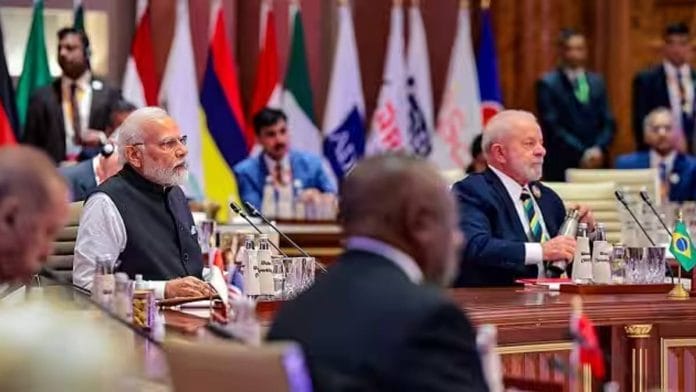New Delhi: Diplomats from the South Korean and German embassies in New Delhi shed light on India’s “Herculean” task in garnering consensus for the G20 Leaders’ Declaration this weekend while speaking to a select group of reporters Monday.
While South Korean ambassador Chang Jae-bok said the Indian G20 presidency undertook a “Herculean” effort, German ambassador Philipp Ackermann revealed that German negotiators only received the text of the document, including eight paragraphs on Ukraine, a day before the summit kicked off.
Speaking at the Korean Cultural Centre, ambassador Chang said it was understood that some “compromise” was necessary to get Russia and China on board for a G20 joint statement.
“Since Russia and China are members of the G20, to get consensus there must be some kind of a compromise. Otherwise, we wouldn’t have a declaration,” he told reporters.
Stéphane Dujarric, spokesperson for the United Nations (UN) Secretary General, shared a similar view.
Speaking exclusively to ThePrint Sunday, Dujarric said “consensus and compromise is what effective leadership is all about”.
Contrary to widespread speculation, India managed to get all G20 members to agree on a joint communiqué Saturday, albeit one with softer language on the war in Ukraine.
Given the difficulty faced by Indonesian negotiators at the Bali G20 summit last year and differing views between Russia and the West over references to the Ukraine war, a shadow loomed over this year’s joint document.
The Delhi Declaration, however, differed from the Bali statement in that it does not refer to the Ukraine conflict with phrases such as “condemn” or “aggression”. It also doesn’t identify Russia as the aggressor in the Ukraine war, unlike last year’s Bali declaration.
Notably, Ukrainian President Volodymyr Zelenskyy was not invited to this year’s G20 Summit in India. That said, the G20 members came together despite fractured geopolitics.
Also Read: G20 Delhi Declaration: How India negotiated Ukraine minefield, aided by Brazil, Indonesia, S. Africa
War ‘in’ Ukraine versus war ‘against’ Ukraine
Ackermann shed some light on the discussions among G20 members on the language used in the declaration issued in Delhi, specifically on the use of the words “war in Ukraine” rather than “war against Ukraine”.
“It might have been better to have had war ‘against’ Ukraine instead of war ‘in’ Ukraine. But when you see that you have to compromise in this very heterogeneous group of countries, it’s a fabulous text,” he said.
After the summit, some western leaders such as Canadian Prime Minister Justin Trudeau had said that if it were up to them, the declaration would have been “stronger”, especially on Ukraine.
“If it was just up to me, the G20 Leaders’ Declaration would have been much stronger, particularly on Ukraine,” Trudeau told reporters Sunday.
“The wording of the Bali declaration was fantastic but it was an 18-country declaration, it wasn’t all 20. But the Delhi Declaration may be stronger than Bali when it comes to nuclear threats, grain initiative, etc,” Ackermann said. “In the spirit of compromise, it’s a very good result”.
Ackermann revealed that German negotiators were handed over the full text of the document, including the sections on Ukraine, on 8 September – a day before the summit. He added that the Indian side waited until the “last minute”.
The ambassador was also of the view that Chinese negotiators posed equal difficulties during negotiations on the declaration, compared to their Russian counterparts who were mostly preoccupied with the sections on Ukraine.
Asked what motivated the Chinese negotiators to come around, he said: “Perhaps they thought that if they said no (to the declaration), they would’ve been too isolated. My reading is that the Chinese and the Indians compete to be the voice of the Global South – and if the Chinese had said no, where would they have been in this group?”
(Edited by Nida Fatima Siddiqui)
Also Read: What businesses need from G20 leaders—driving clean energy transition






